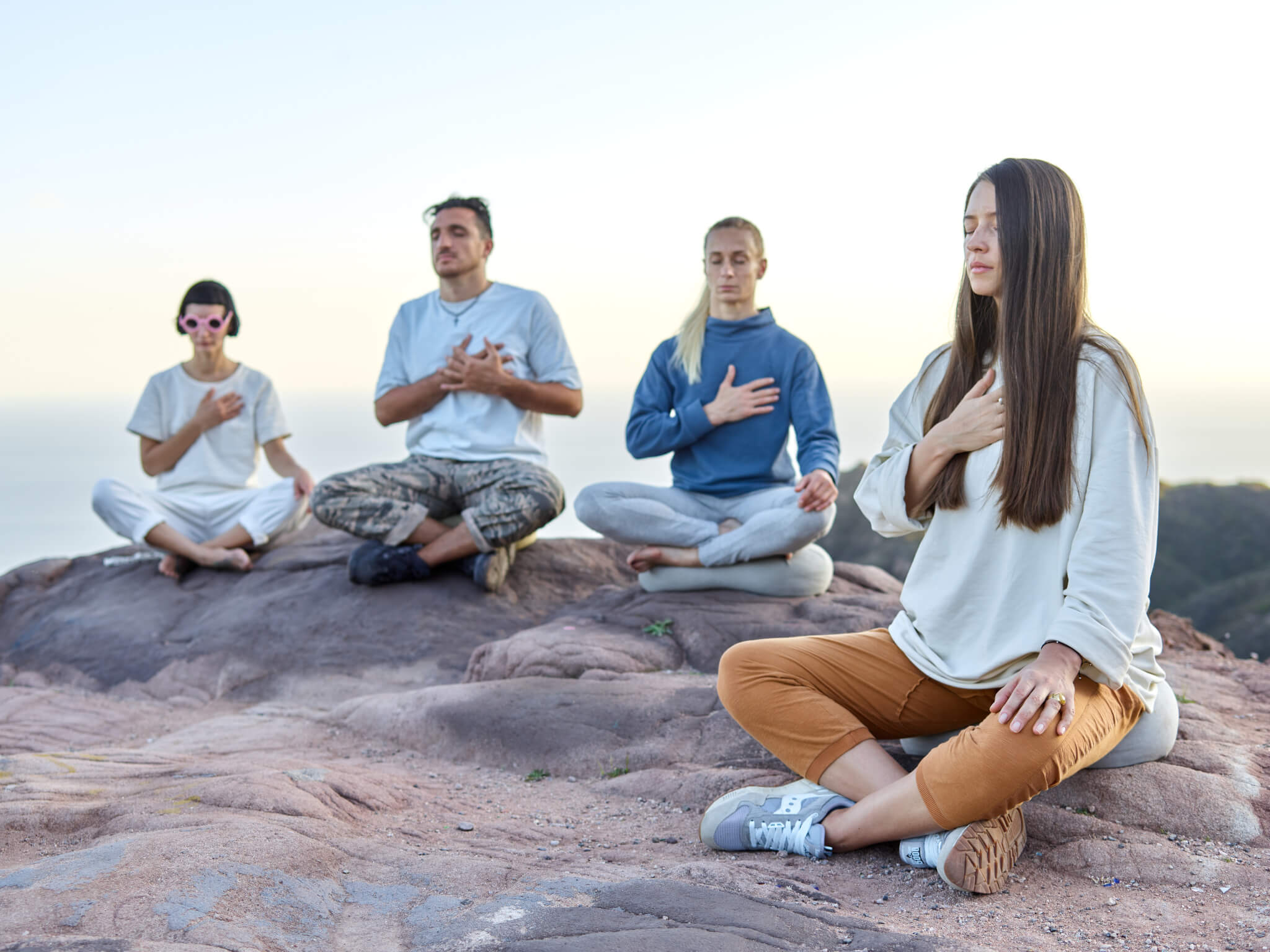FAIRFIELD, Iowa — When a portion of the population practices transcendental meditation, the whole nation’s stress levels go down, according to a 17-year-long study.
In Iowa, a 1,725-person group practiced transcendental meditation for four years. During that period, all stress indicators in the U.S. started decreasing. The group size represents the square root of one percent of the American population.
Study leaders say that during this period, drug-related deaths fell on average by 14 percent, meaning there were 79,941 fewer drug deaths nationwide. Murder, rape, assault, robbery, infant mortality, vehicle fatalities, and childhood deaths by injuries also fell while the group meditated. The researchers add each of these incidents is a stress-related tragedy.
When the numbers meditating fell, the nation’s stress indicators began to return to previous levels. The authors are now calling for a permanent transcendental meditation group to be set up for the whole world, with 8,000 participants in one place.
As an additional buffer, they would also like to install a group on each continent. This form of meditation first gained international recognition when the Beatles travelled to India in 1968 to learn its secrets from its creator Maharishi Mahesh Yogi.
What is transcendental meditation?
Transcendental meditation (TM) involves going beyond active cognitive processes to access the “silent mind,” focusing the mind on one thought, and training the mind to not react emotionally to traumatic memories.
Maharishi Mahesh Yogi believed when enough people practice TM it impacts and improves the collective consciousness, which is the “consciousness of society as a whole.” He claimed crime rates fall, people are less sick, and people begin thinking in ways that favor society.
The maharishi claimed reaching the one percent mark induced a phase transition to increase social order, just like the period when a substance changes from a solid, liquid, or gas state to a different state.
To test his theories, a group from Maharishi International University (MIU) began meditating in 2000. They gradually increased their numbers until, in 2006, they reached 1,725 — the square root of one percent of the population. Between 2007 and 2011, the meditating numbers stayed the same and all stress indicators in the U.S. immediately started decreasing.
The researchers note that the signs of national stress only began decreasing once the square root of one percent of the U.S. population was reached and concluded this was evidence of a phase transition in action. Once the group numbers fell beneath this threshold in 2011, the nation’s stress continued to increase until the study finished in 2016.
Can paying people to meditate help crime rates?
The Howard and Alice Settle Foundation reportedly provided a $75 million grant to provide stipends to group members, allowing hundreds of TM experts to fly over from India and boost the strength of the group.
“What is unique about this study is that the results are so visually striking and on such a large scale. We see reduced stress on multiple indicators at the predicted time for the entire United States over a five-year period. And when the size of the group declined, national stress began increasing again. Clearly, the group was causing the effect,” says lead author Dr. David Orme-Johnson in a media release.
“This is a lot of money, but the savings from the 10% reduction in crimes would save over 200 billion dollars, not to mention all the other savings from reducing other sources of stress in the country.”
Co-author Dr. Kenneth Cavanaugh claims that no factors other than the meditation group could account for the results.
“This study used state-of-the-art methods of time series regression analysis for eliminating potential alternative explanations due to intrinsic pre-existing trends and fluctuations in the data. We carefully studied potential alternative explanations in terms of changes in economic conditions, political leadership, population demographics, and policing strategies. None of these factors could account for the results.”
The findings are published in the World Journal of Social Science.
South West News Service writer Pol Allingham contributed to this report.


or so says TM….. Can we please see the results repeated by a non-affiliated group.
Art Bell would ask his listeners [in the millions probably] to meditate, visualize, pray, etc. to deter bad weather and it always seemed to work